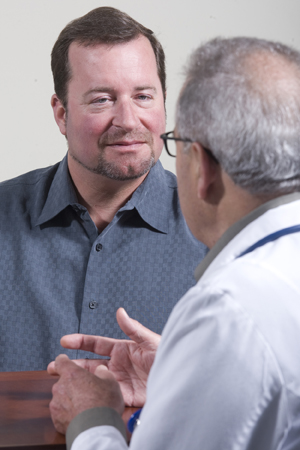Understanding Liver Transplants
During a liver transplant, your diseased or injured liver is removed. It’s replaced with a healthy donor liver. This sheet helps you understand the process leading up to your transplant.
Why you need a liver transplant
Your healthcare provider can tell you more about why now is the right time to prepare for a transplant. It may be because your liver is not working as it should. Or you may have a health condition that would be improved by a liver transplant.

Your transplant evaluation
Before you're put on the transplant list, a transplant evaluation is done. This takes place at the transplant center. It takes anywhere from a few days to a few weeks. It's done on an outpatient basis. This means you go home at night. During the evaluation, your health is assessed. Blood tests and imaging tests are done. Your heart and lung health is checked. You should be screened for colon cancer if you're over 50. You and your family will also learn more about transplantation. The transplant coordinator and the rest of the transplant team will talk to you about:
-
Benefits and risks of a liver transplant
-
Medicines needed after the transplant
-
The possibility of organ rejection
-
Health insurance and financial issues
-
Options for organ donation
-
The process of waiting for an organ
-
What to expect during surgery
-
Care and possible complications after surgery
You'll also discuss:
-
The emotional aspects of waiting for a transplant for you and your family
-
The emotional aspects of transplant recovery and lifelong medical care
-
Travel plans for the time of transplant surgery
-
The possibility of not finding an organ in time for a transplant
-
Researching other centers with shorter waiting times
-
The possibility of a living donor transplant
Where your new liver will come from
Nonliving donation
In most cases, the new liver will come from an organ donor who has just died. This is called a nonliving donation. Before the transplant is done, a donated liver is screened for liver diseases, such as viral hepatitis. It’s also checked to make sure it’s a match with your blood type.
Living donation
Sometimes a healthy living person will donate part of their liver. This is called a living donation. This is often a family member who matches your blood type. Or it may be someone who isn't related to you but whose blood type is a good match.
The liver is the only organ in the body that can replace lost or injured tissue (regenerate). So the part of the liver removed from the living donor grows back after the transplant. And the transplanted liver that you receive also grows to full size after the transplant.
A living donation transplant can be scheduled ahead of time. It may be able to be done sooner than if you go on the waiting list for a nonliving donor. Living donor transplants are less common than nonliving donor transplants. But they are now often done all over the U.S.
Waiting for a transplant
More people in the U.S. are on the waiting list for a liver transplant than there are available donor livers. Getting a liver transplant can be a long process. It could be months or even years before a donor liver is found for you. Here’s what will happen during this time:
-
Your name is added to a waiting list. Very sick people are higher on the list than people who don’t need a transplant right away. If you have liver cancer or a rare disease, you may get a liver faster.
-
Follow instructions for how to stay in contact with the transplant center. The transplant center keeps your status on the waiting list. If your liver disease gets worse or another health problem occurs, tell the transplant center right away. These events could change your position on the list.
Online Medical Reviewer:
Chris Southard RN
Online Medical Reviewer:
Rita Sather RN
Online Medical Reviewer:
Sabrina Felson MD
Date Last Reviewed:
3/1/2024
© 2000-2024 The StayWell Company, LLC. All rights reserved. This information is not intended as a substitute for professional medical care. Always follow your healthcare professional's instructions.